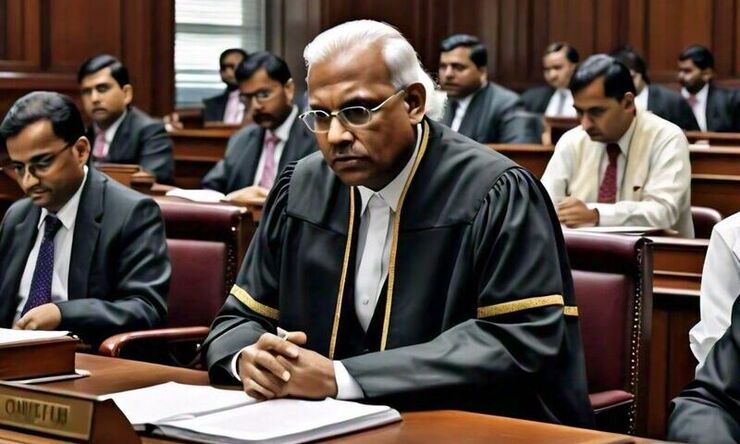Recommendations to Restore the Credibility of the Indian Judiciary
The excerpts from the “India Judicial Research Report 2024: Decline of the Indian Judiciary” are given below.
In order to restore the credibility of the Indian judiciary, some of the recommendations are given below.
Screening of Judges: The judges should not be appointed without proper live-streamed interviews with them by select committees of honest judges and reputed citizens after making the profiles and records of candidates public on a dedicated website. The open interviews with candidates should be on the lines of congressional hearings in the United States. This method should be applied to the existing judges also. Only those judges should be appointed in high courts and the Supreme Court who would not take government jobs or any other undue benefit after retirement.
Qualification of Lawyers: Only those people should be allowed to operate as advocates in courts who have obtained their law degrees from top colleges or universities. They should first clear a proper test comprising English, communications, law, technology, etc. before allocating a court to them. Their record and the fee they charge should be publicly available on a government-monitored website.
Lateral Entry: The courts can provide lateral entry to qualified professionals and domain experts to work as lawyers. Such lateral entry is already being provided in Indian civil services where professionals from the private sector are allowed to work as Indian Administrative Service (IAS), Indian Police Service (IPS), and Indian Revenue Service (IRS) officers.
Academic Courses: The law colleges and universities should revamp their courses and pedagogical methodologies to produce professionals who can work in the evolving legal ecosystem driven by new technologies and communication systems.
Formation of Juries: Since at present, the judges and lawyers are not fully qualified, there should be a mandatory provision to form independent juries to deliver the final verdict in certain types of cases. A jury is a group of qualified people who participate in a court trial to decide if a person is guilty or not guilty, or to decide a claim.
Technology for Judgments: In order to minimize the human intervention in the process of court decisions, artificial intelligence (AI)-based technology expert systems should be deployed in each court to evaluate the correctness of judgments. The litigants should be given the option to use the AI expert systems to get the court decisions vetted. Action should be taken against judges whose judgments fail the AI test repeatedly.
Legal Aid: It should be made compulsory for fully qualified advocates to provide free legal aid in all types of courts. These advocates must be selected after properly testing their communication skills, language skills, technology skills, and knowledge of law. There should be a proper mechanism for clients to complain against the dishonest or unskilled advocates.
Online Court Cases: At present, the e-filing systems are almost extinct. The digital interfaces to accept and manage court cases must be simplified so that more litigants can use them without hiring the services of advocates. Since the free email services such as Gmail, Hotmail, and Yahoo Mail are behaving erratically, the litigants should be given the option to simply upload their documents on all court websites with acknowledgement sent back to the litigant.
Courage of Judges: All judges should work courageously without any fear of the criminal politicians. They should get inspired from judge Loya who died in mysterious circumstances, but many believe that he was murdered because he did not succumb to threats from certain politicians who were facing criminal cases.
Committee of Domain Experts: Instead of forming committees of traditional bureaucrats or court staff to supervise various legal processes, the Supreme Court and the government should form a top-level committee of domain experts who understand law, technology, communications, and public relations. This group of experts should redevelop and revamp the court processes.
You can click here to know more about the “India Judicial Research Report 2024: Decline of the Indian Judiciary”.
Contact
Rakesh Raman
Editor, RMN News Service [ Website ]
Founder, RMN Foundation [ Website ]
463, DPS Apts., Plot No. 16, Sector 4
Dwarka, Phase I, New Delhi 110 078, India
WhatsApp / Mobile: 9810319059 | Contact by Email
Donation: Indian donors can click here to donate online to RMN Foundation / RMN News Service and you can also click here to donate with PayPal.












